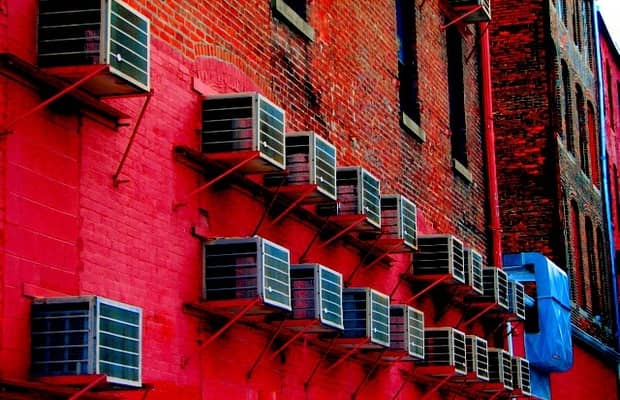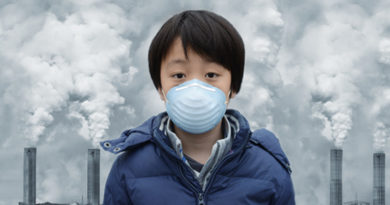Fair Cooling Award Winners Get Grants Totaling $580,000

A new fund is giving grants totalling $580,000 to enable sustainable cooling for those most at risk from extreme heat.
As global temperatures climb, roughly one billion people lack access to cooling – threatening their health and their ability to earn a living. In 2017 alone, 153 billion hours of work were lost due to extreme heat as a result of climate change – since then, temperatures have continued to rise.
Communities face sweltering homes and streets, increased crop waste and a lack of cold storage for vaccines. Mechanised air conditioning is unaffordable for many, and its use accelerates the climate crisis.
Now the Fair Cooling Fund is helping seven organisations in India, Egypt, Rwanda, Ghana and Colombia develop and scale up innovative sustainable cooling solutions. The fund is provided by philanthropic collaborative K-CEP and administered by climate solutions charity Ashden.
Featured solutions include solar-powered refrigeration for small-scale farmers and low-carbon cooling for slum houses. Tackling inequality and empowering women are key features of the funded projects.
Ashden CEO Harriet Lamb said: “We are thrilled by the energy, ambition and compassion of our Fair Cooling Fund cohort. Their ideas have huge potential to protect those at greatest risk from extreme heat, putting justice and fairness at the heart of the sustainable cooling challenge. We will support these pioneers in the months ahead, as they bring their bold plans to life.”
K-CEP Executive Director Jessica Brown said: “K-CEP envisions a world where efficient, climate-friendly cooling is accessible to all. To address the urgent cooling needs of the vulnerable, we need joint effort from innovators, funders, policymakers and communities to deliver out-of-the-box and innovative solutions at scale. K-CEP is excited to partner with Ashden to spotlight and support these pioneers and raise the profile of access to cooling. We look forward to catalysing even wider collaboration and commitment to tackle the cooling challenge.”
These initiatives have been backed with grants from $40,000 to $100,000. Some organisations have already used the backing of the Fair Cooling Fund to unlock additional finance from other sources.
The fund is the latest stage in an ongoing collaboration between Ashden and K-CEP. The 2020 Ashden Award for Cool Cities, funded by K-CEP, was given to the Ahmedabad Heat Action Plan. Another Ashden Award for sustainable, inclusive cooling will be made in 2021. Organisations can register their interest now.
The Fair Cooling Fund innovators
cBalance: bringing architecture students and communities together to retrofit informal housing to improve thermal comfort in India – especially at night when it is often too hot to sleep.
ECOnsult: making the case for alternatives to energy-intensive air-conditioning for cooling: demonstrating how to integrate indigenous architectural knowledge into housing design for low-income communities in Egypt to keep residents cool.
Ecozen is a clean technology company enabling a climate smart farm-to-fork value chain for perishables. Their hardware (cold rooms) and market linkage platform enables farmers to grow more, reduce agri-produce loss and sell at better price. Ecozen is commited to providing great technology with economic viability, and through the Fair Cooling Fund will introduce and pilot a smaller version of their existing product, to reduce the barriers to access cooling for small holder farmers, food growers and businesses in India.
MASS Design Group: launching a research and communications initiative with Rwandan homeowners to discover and replicate more thermally efficient alternatives to metal roofs. Collaborating with suppliers to make solutions accessible.
City of Medellin: developing an urban planning methodology to enable other cities in Colombia – and ultimately the world – to follow in the city’s pioneering footsteps, introducing biodiversity to the urban landscape to mitigate climate change impacts and tackle social inequalities.
PEG Africa: testing different loan and sustainable refrigeration models to ensure cold storage is available to fish processors and other businesses in rural Ghana. The initiative will include an investigation into the needs of, preferences of and possibilities for women entrepreneurs.
Promethean Power Systems: Pioneering a new service and service infrastructure for chilling, processing and distributing milk and dairy in rural India, in partnership with NGO Swayam Shikshan Prayog. This work will enable small-scale farmers – many of them women – to store and combine their produce in optimal conditions, accessing further away markets and commanding a more competitive price.
The Kigali Cooling Efficiency Program (K-CEP) is a $60 million philanthropic collaborative that works in tandem with the Kigali Amendment of the Montreal Protocol by helping developing countries speed and scale efficient, climate-friendly cooling. K-CEP focuses on the energy efficiency of cooling in order to double the climate benefits and significantly increase the development benefits of the Kigali Amendment’s aim to phase down HFCs. K-CEP is an initiative of the ClimateWorks Foundation.




